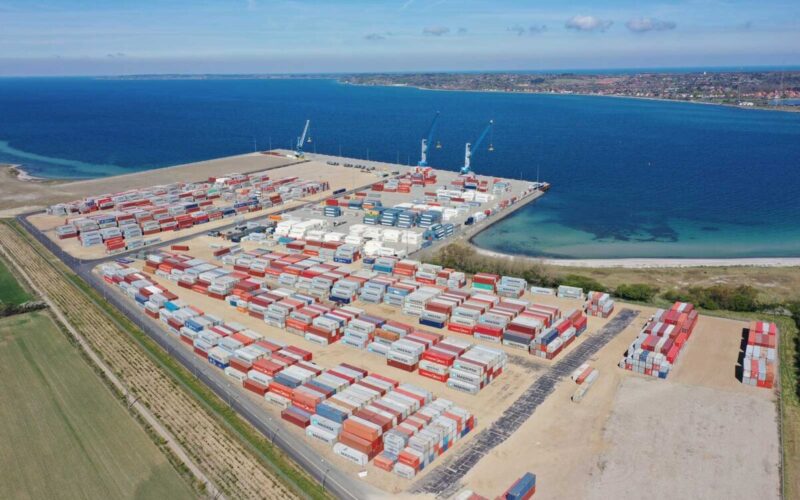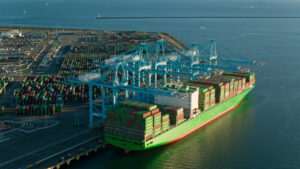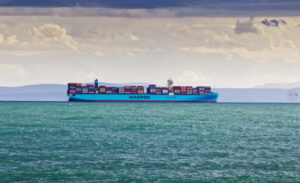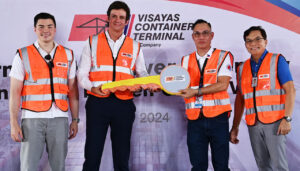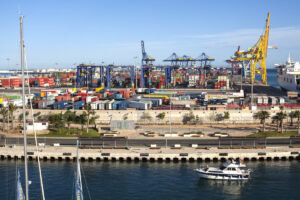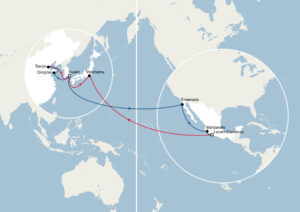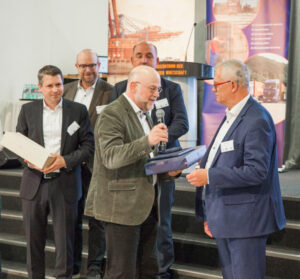The Port of Kalundborg, Denmark, has announced it will electrify all cranes in its deep-water container terminal within seven months to further lift the standard of responsibility.
The terminal, operated by APM Terminals (APMT) since March 2021, additionally announced that the container handling equipment in the short term will run on HVO100 fuel – or hydrotreated vegetable oil – reducing CO2 emissions by 90 per cent.
In the longer term, the terminal will look into other decarbonised solutions for the container handling equipment, for instance batteries.
The announcement was made on 31 October ahead of the first call at the terminal by Laura Maersk, the world’s first hydrogen powered container vessel.
READ: Port of Felixstowe welcomes Maersk’s methanol-powered vessel
The commitment by Port of Kalundborg to electrify its cranes, and for APMT to switch to HVO100 fuel means that within months, the terminal will offer customers a huge reduction in landside emissions.
Kalundborg will become one of only a handful of APMT to use the biofuel, joining APMT Gothenburg and P400 in Los Angeles which has used a similar renewable diesel since 2021.
Mikael Gutman, CEO APM Terminals Nordics, said the Port of Kalundborg has “vast potential” as an environmentally friendly and faster route to the important market in and around Zealand.
READ: APM Terminals Bahrain appoints new MD
“With the measures we are taking, we can offer a green gateway to the Zealand market,” added Gutman.
“Not only is this unique in a Danish context, it is also unique internationally and places Kalundborg on the world map as a leader of the green energy transition,” Gutman added.
In the summer of 2023, APMT reached an agreement with the Port of Kalundborg in Denmark to extend the concession of Kalundborg container terminal to 2033.

